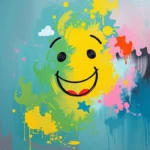
Have you ever woken up from a dream, heart racing, and wondered what on earth it could mean? Dreams often feel like a jigsaw puzzle, with pieces that seem unrelated but hold a deeper significance when put together. Each night, our subconscious mind weaves narratives that reflect our fears, desires, and hidden thoughts. By decoding these dreams, we can unlock insights about ourselves and our lives.
As you embark on this journey of dream interpretation, remember that the symbols can vary widely across cultures and individuals. What might signify danger for one person could represent a new opportunity for another. Let’s dive into the world of dreams together, exploring the layers of meaning they hold and how we can use this knowledge for personal growth.
Unpacking the Dream Toolbox: Symbols of the Subconscious
Dreams are like a language, rich with symbols that speak volumes about our inner lives. Understanding these symbols is the first step in interpreting your dreams. Here are some common symbols and their interpretations across various cultures and psychological frameworks:
-
Water: A universal symbol of emotion and the unconscious mind, water can represent feelings that are either flowing smoothly or turbulent. In many cultures, water signifies renewal and cleansing, while Freudian analysis often links it to the feminine and fertility.
-
Flying: This exhilarating experience in dreams typically symbolizes freedom and escape. It’s not uncommon to interpret flying as a desire to rise above challenges or break free from constraints. However, in some traditions, it may also reflect a sense of detachment from reality.
-
Chased: Being pursued in a dream often indicates that you are avoiding something in your waking life. Carl Jung suggested that this could be an aspect of yourself that you are not willing to confront. Conversely, in certain indigenous cultures, being chased might represent the struggle to face personal demons or societal pressures.
-
Teeth Falling Out: A common dream that many people experience, it can symbolize anxiety about self-image or fear of aging. In some cultures, it is also linked to concerns about communication or loss of power.
-
Houses: The house in a dream often represents the self. Each room may signify different aspects of your personality. In many Eastern philosophies, the layout of a house can indicate your mental state and how well you are integrating different parts of yourself.
Understanding these key concepts allows you to reflect on what resonates with you personally. When you consider the symbols in your dreams, ask yourself: What emotions did I feel? What situations in my life mirror these symbols?
Dreamscapes Unveiled: Tales from the Night
Let’s take a look at some common dream scenarios to illustrate how these symbols play out in our lives. Each scenario offers a unique lens through which you can examine your own experiences and feelings.
-
The Stormy Ocean: You find yourself standing on a cliff, watching a tempestuous ocean below. The waves crash ferociously, reflecting your inner turmoil. This dream might symbolize feelings of being overwhelmed by your emotions or circumstances. It’s your subconscious urging you to find safe harbor amidst the chaos—perhaps it’s time to seek support or address unresolved feelings.
-
The Endless Hallway: You’re walking down a seemingly endless hallway with doors on either side, but every door you try is locked. This dream often points to feelings of stagnation or being trapped in your current situation. It suggests a longing for new opportunities or a need to confront obstacles that are keeping you from moving forward.
-
The Lost Child: You dream of searching for a lost child, filled with a deep sense of panic. This scenario may indicate that you are neglecting a part of yourself, often tied to your inner child or creativity. It’s a call to nurture that lost aspect and reconnect with your authentic self, perhaps through creative pursuits or self-care.
-
The Unfamiliar Face: In a dream, you meet a stranger who seems to know you deeply, yet you cannot recognize them. This stranger may symbolize an unexplored part of yourself or a new aspect of your personality that is emerging. This encounter invites you to embrace change and acknowledge the transformation taking place within you.
-
The Exam: You find yourself suddenly back in school, unprepared for an exam. This dream often ties to feelings of self-doubt or anxiety about performance. It can be a reflection of real-life pressures and expectations, urging you to confront these fears and recognize your competence.
Each of these scenarios serves as a mirror, reflecting the complexities of your emotional landscape. When you analyze your own dreams, consider how these experiences resonate with your current life circumstances. What do they reveal about your worries or aspirations?
Dreaming Forward: Building a Better You
Now that you have explored the symbols and scenarios, let’s shift our focus to how you can use this knowledge for personal growth. Dreams are not just entertainment; they can be powerful tools for self-discovery and transformation. Here are a few practical steps to incorporate dream interpretation into your daily life:
-
Keep a Dream Journal: Start recording your dreams as soon as you wake up. Write down as many details as you can remember, focusing on the feelings and symbols present. Over time, you’ll notice patterns or recurring themes that can provide deeper insight into your psyche.
-
Meditate on Symbols: Choose a symbol from your dreams that resonates with you. Spend time meditating on it—what does it represent in your life? How can you integrate its message into your waking hours? This practice can help you connect the dots between your dreams and conscious thoughts.
-
Share and Discuss: Talk about your dreams with trusted friends or family members. Sometimes, discussing your dreams out loud can lead to new revelations. They may offer perspectives you hadn’t considered, helping you to dive deeper into your understanding.
-
Act on Insights: Once you’ve interpreted a dream, think about how you can apply the insights to your life. If a dream urges you to confront fears, take small steps toward facing those challenges. If it highlights a need for creativity, carve out time in your schedule for artistic expression.
-
Reflect Regularly: Set aside time each week to reflect on your dreams and what they reveal about your life. Consider how they align with your goals and values. This ongoing practice will help you remain in tune with your inner self and facilitate continuous growth.
By embracing the messages of your dreams, you can navigate life’s challenges with greater awareness and intention. Dreams can serve as a compass, guiding you toward deeper understanding and authentic living.
As you continue this journey of exploration, remember that dreams are deeply personal. They are a reflection of your unique experiences, fears, and desires. The more you invest in understanding their messages, the more empowered you’ll feel in shaping your own reality.
In the end, each dream is an invitation to delve deeper into the landscape of your mind. So, keep dreaming, keep reflecting, and let the whispers of your subconscious guide you toward your best self.







